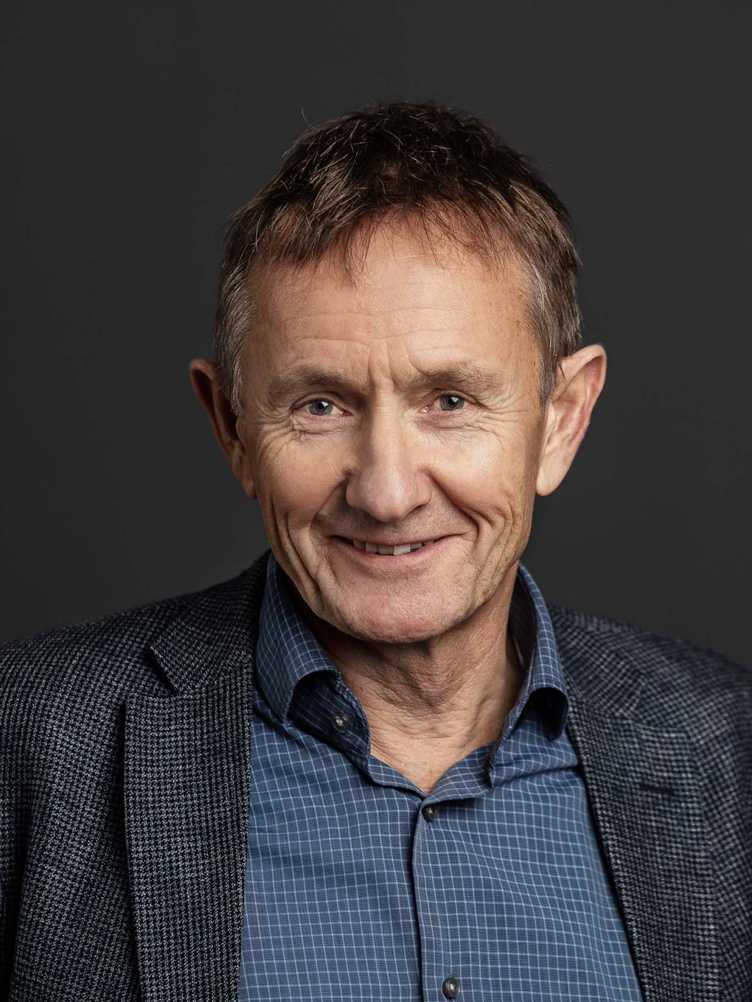Recognizing and seizing opportunities
Jürg Dual, Professor of Mechanics and Experimental Dynamics, will retire at the end of July 2022. But his thirst for research is far from quenched. In addition to acoustofluidics he is particularly passionate about gravitational research.
After 32 years, your time at D-MAVT officially ends in July 2022. What moment from all those years will you always remember?
Not just one, but many: For example, in teaching, when all of a sudden Santa Claus walked into the lecture. Or those moments when, while hiking in the mountains, people "unknown" to me approached me and it turned out that they had attended one of my lectures. Or also when, as President of the University Assembly, I gave a speech at ETH Day representing the various university groups.

What were your most exciting projects at ETH Zurich?
All projects were exciting! The boring ones didn't make the shortlist. I had sleepless nights, for example, when we were preparing the spin-off Rheonics. At external page Rheonics we build sensors to measure viscosity. These were initially used primarily in the petroleum industry and are now also used for lithium batteries or printing inks, among other things.
The development of a desktop device for PCR tests was also very exciting. Unfortunately, at that time - which is nearly 20 years ago - no one wanted to develop it further until it was ready for the market. In the times of the Corona pandemic, the device would have been extremely helpful.
I also find gravitational research, which we started five years ago, really exciting. The project is still going on, and I find it extremely fascinating.
And what have you enjoyed most on a personal level?
The interaction with students, doctoral students, and colleagues has always been rewarding. However, I have to admit that the last five years in particular have been very special. We work extremely well together in the gravitational research team. Everyone contributes and puts in maximum effort - without this commitment we would never have come so far in such a short time.
You come from Switzerland, studied at ETH Zurich and also did your doctorate here. Did you want to work at ETH from the very beginning?
I previously studied at UC Berkeley (UCB) for two years with a Fulbright scholarship. Then I was an assistant professor at Cornell University (CU) for a year after my doctoral degree. There I had to make a difficult decision: Stay at CU, move to UCB, or return to Switzerland to ETH Zurich. At the time, there was a lot to be said for ETH, even though the other universities also have an excellent reputation.
In the end, the decisive factor for me was that as an assistant professor at ETH Zurich I already had the financial leeway to try out many ideas. Being able to maintain the relationship with my family also spoke in favor of Switzerland. I have to admit, however, that I could have also imagined a career in industry.
What will you miss most after you retire?
The opportunities to break new ground in research, to try something that no one has done before. It's amazing that in experimental mechanics, a field that goes back to Galileo Galilei (1564-1642), you can still do things that are new today. As a professor, you have an incredible privilege in this regard: There are no limits to new ideas, and new technologies make it possible to bring them to fruition.
What is your advice for young scientists?
There are always opportunities that arise at some point: It is essential to see them and seize them. Openness beyond preconceived ideas and plans is very helpful.
For example, I only had one day to accept or deny a one-year commitment at Cornell University. If I hadn't jumped at that opportunity, many things probably would have turned out very differently.
At the same time, of course, it's important not to get bogged down with all the temptations at university and to find a good balance with activities outside of the university, such as partnership, family, friends, and hobbies.
What are your plans for the near future?
First, I will finish supervising my last doctoral students. In addition, we want to explore in the team whether the current understanding of gravity is also valid at frequencies 10,000 times higher than has been investigated so far. There are probably a few surprises in store for us!
Maybe I will also get more involved again in our spin-off Rheonics or do some more work at other universities or in industry. That remains to be seen.
And then, at some point, I will dedicate my time to the neglected hobbies, such as music, reading, playing, ski mountaineering, learning Rumantsch,... When it comes to traveling, we have decided to keep a low profile in view of the current climate crisis. But we will definitely visit my daughter in Sweden.
What will always find a place on your desk?
Well, documents for various projects like to occupy my desk and stay there for a very long time... Still, there is always room for a laptop and a cup of coffee.